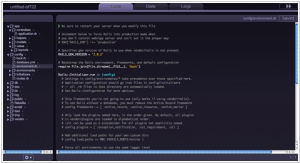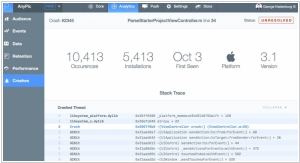Heroku vs Parse
August 19, 2023 | Author: Sandeep Sharma
Heroku and Parse are both popular cloud-based platforms for application development, but they have distinct focuses and features.
Heroku is a platform-as-a-service (PaaS) offering that simplifies the deployment and management of applications. It provides developers with a streamlined environment to build, deploy, and scale applications using various programming languages and frameworks. Heroku offers a wide range of services, including seamless integration with popular development tools, automated scaling, and a robust ecosystem of add-ons.
Parse, on the other hand, is a mobile backend-as-a-service (MBaaS) platform that specifically caters to the needs of mobile app development. It provides ready-to-use backend services, such as user authentication, database storage, and push notifications, which significantly simplifies the development process. Parse offers mobile-specific features and libraries, allowing developers to focus more on building the frontend of their mobile apps.
See also: Top 10 Mobile App Builders
Heroku is a platform-as-a-service (PaaS) offering that simplifies the deployment and management of applications. It provides developers with a streamlined environment to build, deploy, and scale applications using various programming languages and frameworks. Heroku offers a wide range of services, including seamless integration with popular development tools, automated scaling, and a robust ecosystem of add-ons.
Parse, on the other hand, is a mobile backend-as-a-service (MBaaS) platform that specifically caters to the needs of mobile app development. It provides ready-to-use backend services, such as user authentication, database storage, and push notifications, which significantly simplifies the development process. Parse offers mobile-specific features and libraries, allowing developers to focus more on building the frontend of their mobile apps.
See also: Top 10 Mobile App Builders
Heroku vs Parse in our news:
2015. Heroku launches application development platform for Enterprise
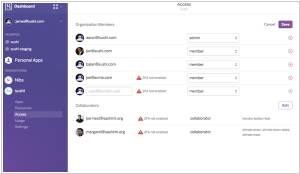
Heroku, the application development and hosting platform owned by Salesforce, has introduced a new offering known as Heroku Enterprise. This product line specifically targets large companies aiming to develop modern applications similar to those found in startups, while also providing the security features and access control often sought by enterprises. Essentially, Heroku Enterprise claims to offer the best of both worlds by enabling large enterprises to create agile-developed applications utilizing cutting-edge technologies like containers and new database services, all while adhering to the stringent governance requirements of the enterprise environment. It's an ambitious goal, and if Heroku successfully accomplishes it, they deserve commendation. With Heroku Enterprise, organizations can now effectively monitor all their developers, applications, and resources through a unified interface, streamlining their management processes.
2014. Mobile app builder Parse adds crash reporting and local datastore
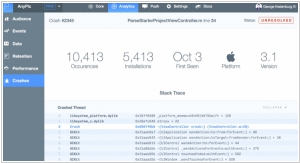
Parse, the mobile development platform that was acquired by Facebook last year, provides developers with a comprehensive set of features. However, one crucial aspect that was missing until now was crash reporting. While Parse offers an analytics service, developers had to rely on third-party tools to track app crashes. Fortunately, today, this much-needed feature has been made available. Another exciting addition is the support for Parse's local datastore on iOS, which was previously only available for Android. This framework enables developers to facilitate the use of critical app features even when users are offline, making it easier to deliver a seamless experience.
2014. App builder Parse adds A/B testing for push notifications
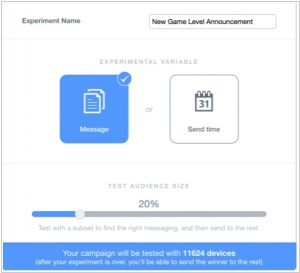
The latest feature being introduced by Parse, a subsidiary of Facebook, is called Parse Push Experiments. This feature is specifically targeted towards marketers and developers utilizing the Parse SDKs in their applications. It enables them to conduct A/B tests on various messages and timings for push notifications sent to mobile devices. The update seamlessly integrates with apps that are already using the most recent versions of the Parse SDKs, requiring no modifications from the developers' end. Instead, a new option has been added to the push composer in the Parse web console, allowing users to access A/B testing capabilities. According to Parse, over the past month, they have dispatched a staggering 2.4 billion mobile push notifications. Incorporating A/B testing into such a massive distribution system will undoubtedly have a significant impact on how and when millions of individuals choose to engage with their devices.
2014. Salesforce connects Heroku to its cloud
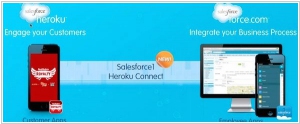
After acquiring the Heroku cloud application platform in 2010, Salesforce has finally established a connection between Heroku and Force.com through the introduction of the Heroku Connect tool. Although Heroku and Force.com are built on different development systems with distinct programming languages, Salesforce has successfully established a functional bi-directional link between them. This connection eliminates the need for extensive recoding, which can be both expensive and time-consuming, allowing Salesforce customers to effortlessly connect their Heroku apps to the Salesforce ecosystem. Salesforce recognizes the importance of showcasing tools like Heroku Connect to attract developers and assure them that Force.com seamlessly integrates with popular web toolkits like Node.js, Ruby on Rails, and Java.
2012. Top 7 Dreamforce stories

At the Dreamforce 12 conference Salesforce presented a lot of new products, but the problem is that most of these new products either had been already presented at the conference last year, or will become live to next year's conference. So, we'll just briefly go over the main ones: ***
2010. Force.com 2 - already 5 PaaS platfroms
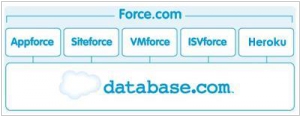
At the Dreamforce conference, Salesforce demonstrated one more time that now it's not so interested in CRM (it was mainly a subject for jokes) as in cloud platforms. Following the release of SaaS database Database.com, the company introduced another big Force.com feature - Heroku - the PaaS startup that Salesforce has recently acquired for $ 212 million. Heroku - is a cloud platform for developing and hosting Ruby-applications (Ruby - is a popular framework for developing Web apps, created by 37Signals). Heroku became one of the five PaaS-services included in the new version Force.com 2. And the new structure of the Force.com platform now looks like this: ***

